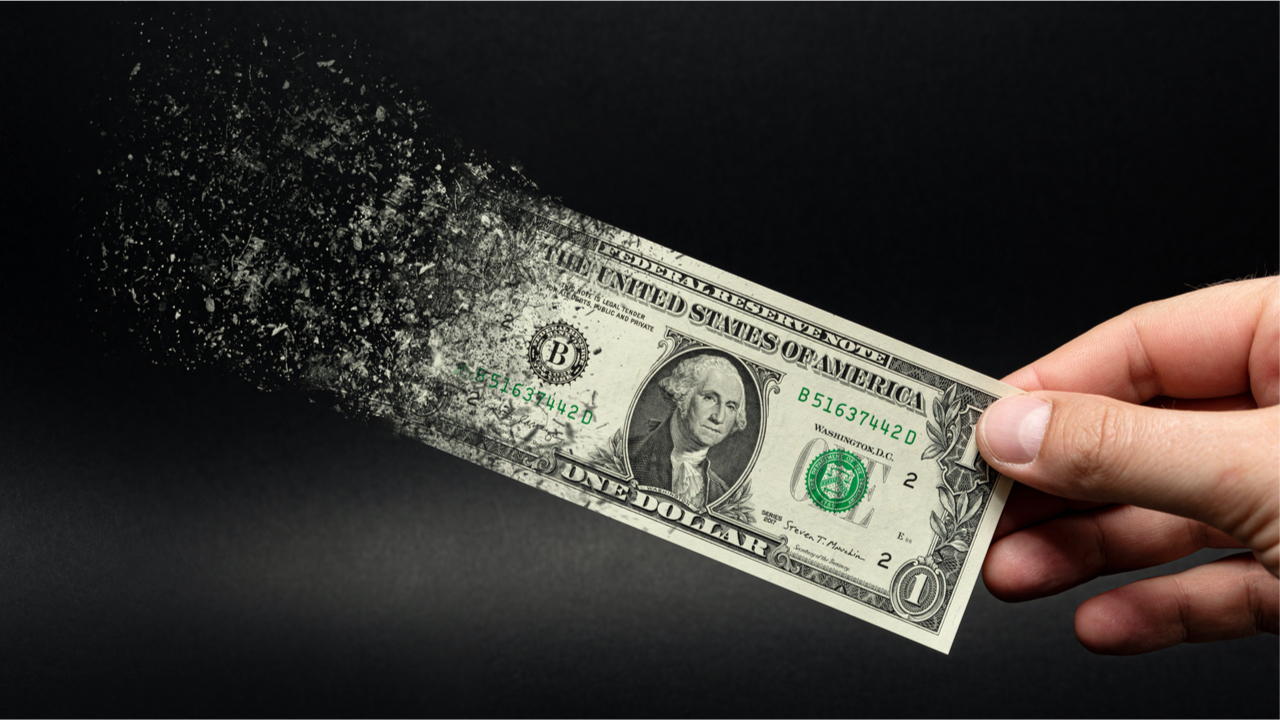
Here’s how the co-founder of a Middle Eastern restaurant convinced his colleagues to upgrade their franchise to a Bitcoin standard.
The Canadian restaurant franchise Tahini’s serves Middle East-inspired food with a Bitcoin-inspired twist.
Since August 2020, when the price of Bitcoin (BTC) was under $20,000, the group has operated on a Bitcoin standard, with any profits it makes swept into BTC.
The Tahini’s Twitter account has since argued that Bitcoin is the “most Islamic” thing Muslims can do with their wealth, and the group educates its customers on sound money. It has even become a niche bear market meme, with Michael Saylor famously saying he might apply to work night shifts at Tahini’s during January’s price correction:
May apply for night shift at @TheRealTahinis to stack more sats. #NewProfilePic pic.twitter.com/ZrirLojvrq
— Michael Saylor⚡️ (@saylor) January 23, 2022
Cointelegraph spoke with Ali Hamam, co-founder and chief marketing officer of Tahini’s, to understand the whys, hows and unintended consequences of operating under a Bitcoin standard. Hamam was the driving force of the Bitcoin adoption in the Middle Eastern chain.

Hamam first learned of Bitcoin in 2016 or 2017 but discarded the innovation as a Ponzi scheme, or “rat poison,” as he was dissuaded by its negative press. It took the COVID-19 pandemic and its real-world consequences for Hamam’s Bitcoin lightbulb moment to take place.
“In March of 2020, we got hit with the lockdowns and the fear. Our sales at the restaurants dropped like 70% in a week. And yet, there was more money flowing around with our employees, our fellow Canadians. Everybody just had more money.”
Inspired by the writings of Robert Breedlove — a Bitcoin influencer and entrepreneur — sound money in the form of BTC dawned on him. Hamam said that he and his company needed to find a better way to store value. “Money is going to be worthless,” he said.
“It sort of clicked for me that this is a once-in-a-multigeneration type of breakthrough and invention. The idea of absolute fixed money is something that we’ve never seen in history.”
Hamam was hooked. He went all in, devouring Bitcoin-focused books, podcasts and, in some cases, not sleeping as he educated himself and fell deeper down the rabbit hole.
“It grew into a way of life where it’s like, okay, this is something that I should be integrating with every single aspect of my life, from my kids' education funds to my business.”
Armed with freshly acquired knowledge, Hamam met with his business partners at Tahini’s to pitch the idea of running the business on a Bitcoin standard. The argument behind having the “Bitcoin standard” — a term popularized by Saifedean Ammous, author of the eponymous book, The Bitcoin Standard — is that not Bitcoin is not just a better reserve currency than the U.S. dollar, it’s actually a superior currency.

Consequently, the business should carve out a route with profits in Bitcoin in mind. For Tahini’s, that means keeping a working capital of roughly six months of expenses on hand. According to Haman:
“Anything beyond that number is considered treasury, and we sweep into Bitcoin. So, some months we will buy a little bit more aggressively — when the price is down — and then the months after that, we will slow down a little bit. But we kind of have depending on how much the company makes.”
To the doubters, Hamam said, “We always try to manage it in a way where we never have to sell any Bitcoin. That’s the key part.” Hamam claimed that while he has gifted BTC to family and friends, he’s never sold it.
Tahini’s is working to put in place the infrastructure required to accept Bitcoin as payment, but the process is challenging — not due to regulation or payment processors but because the franchise wants to hold the Bitcoin it accepts. “Even if you’re going to accept Bitcoin, work it out in a way where you never have to sell it,” Hamam explained.
Today we met at Tahinis #HamOnt with @shakepay and @Innocente_Brew and an amazing group of bitcoiners from all over Canada. We all have one mission. To make #Bitcoin the Standard pic.twitter.com/nLhGlHojzd
— Tahinis Restaurants (@TheRealTahinis) June 2, 2022
The inevitable publicity bump that comes from jumping on the “Bitcoin accepted here” bandwagon is attractive, Hamam said, but “If you’re selling your Bitcoin immediately after you receive it, then you don’t really get Bitcoin, in my opinion.”
Hamam mentioned the Strike Lightning Network integration as an attractive proposition, as it would eliminate the high fees charged by Mastercard, but it’s still “pretty early” to explore payment options when the priority is growing the business.
Ultimately, in a developed economy like Canada with comparably high levels of trust in institutions, Bitcoin is primarily a savings tool. Equally, Tahini’s is not currently exploring paying salaries in BTC, as the franchise does not want to force the cryptocurrency onto its staff.
But that hasn’t stopped Hamam from persuading Canada’s Conservative leadership candidate, Pierre Poilievre, from buying shawarma with Bitcoin on the Lightning Network after Hamam “orange-pilled the heck out of him.” It was the first Bitcoin transaction made at Tahini’s, performed by an increasingly pro-Bitcoin politician.
Conservative leadership candidate @PierrePoilievre buys chicken shawarma from @TheRealTahinis using bitcoin Lightning Network. Transaction cost was one satoshi, which the consumer covers. This was the first bitcoin purchase at Tahini’s. pic.twitter.com/T5hVlY4fy0
— Andrew Lawton (@AndrewLawton) March 28, 2022
On a personal level, Hamam and the more devout Bitcoiners among the management team raise questions such as: “Have you heard about Bitcoin?” “Did you know you can buy a fraction of a Bitcoin?” And even “Maybe you should think about putting a few dollars into a Bitcoin retirement plan.”
Inevitably, the orange-pilling is far more successful when the price is on a tear. If the price is dropping, it’s a bit more challenging. When China cracked down on crypto, for example, some of Hamam’s management team “freaked out a little bit.” Indeed, the 300% gains Cointelegraph reported earlier this year have begun to melt away.
Hamam said that his conviction was enough to steer the ship and settle his colleagues’ nerves. Running a restaurant on a Bitcoin standard comes with a side of zealotry. While Hamam sings the premier cryptocurrency’s praises, there’s also a community of passionate BTC aficionados who back Tahini’s investment decision and continue to offer support:
“The amount of love that I have for the Bitcoin community is — I can’t even describe it. People that have never even tried our food.”
Related: KPMG in Canada adds BTC and ETH to its treasury
However, Hamam said that the Bitcoin community has not directly impacted sales, as it’s still a tiny, albeit vocal, community worldwide.
Nonetheless, the business kept its head above water during the 2021 market turmoil and plans to expand to over 25 franchises in 2022. Hamam is resolute in his decision to put the profits into Bitcoin — even in the face of a tumultuous economic backdrop:
“You’re still going to gain the same benefits anyone else would gain, or Michael Saylor would gain, or Elon Musk would gain.”
The company has “aligned itself with the mission of Bitcoin” while, of course, serving “great food” to anyone. More and more companies could follow their lead and operate on a Bitcoin standard, while Hamam joked there might be a Middle Eastern dish that riffs on the cryptocurrency hitting franchises soon.









